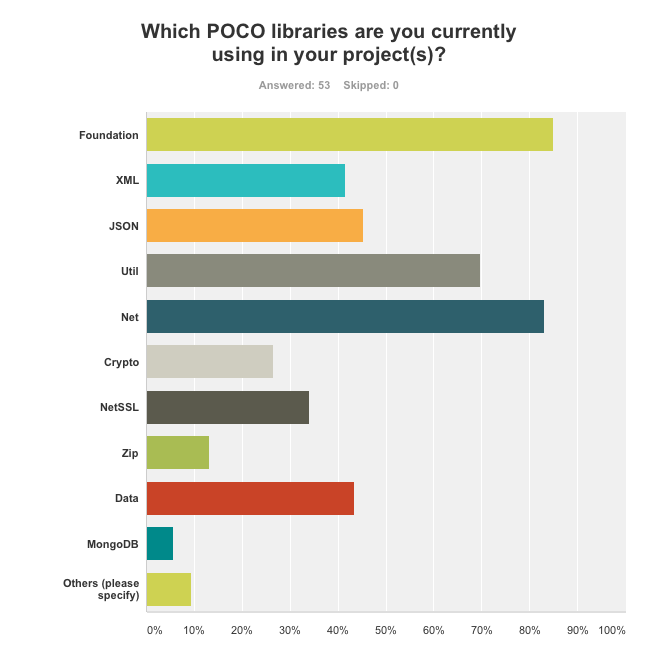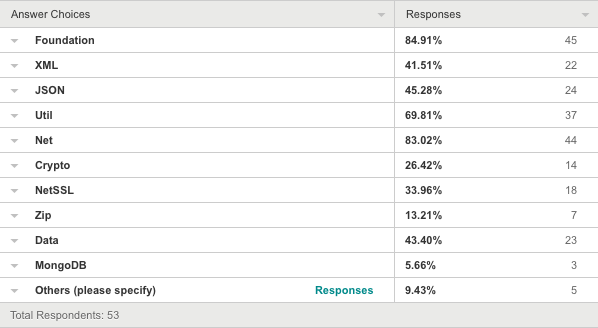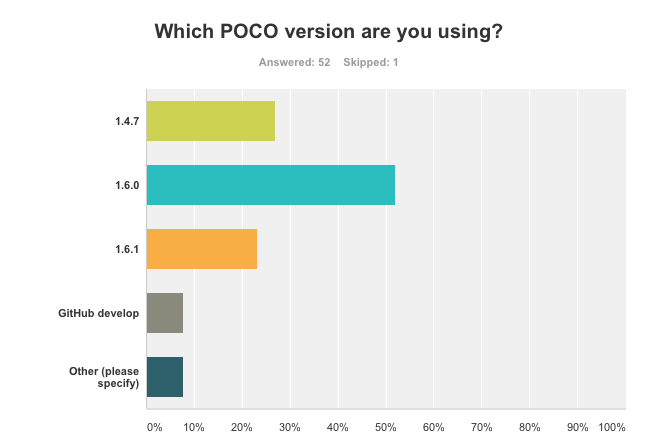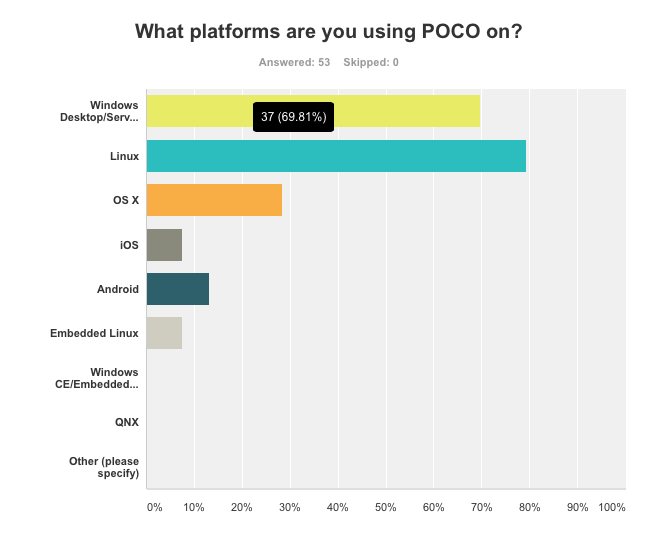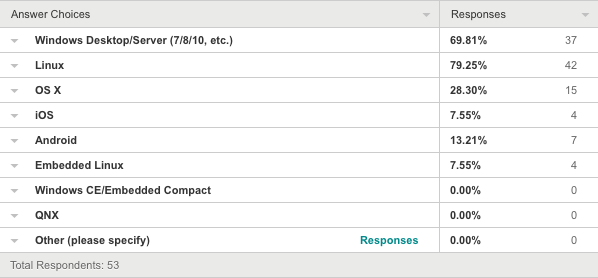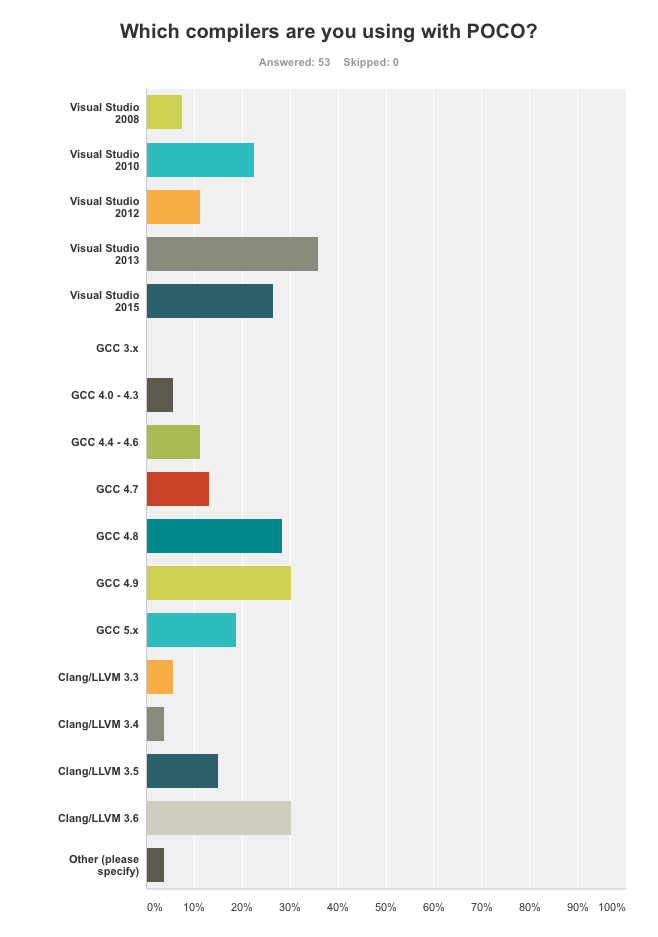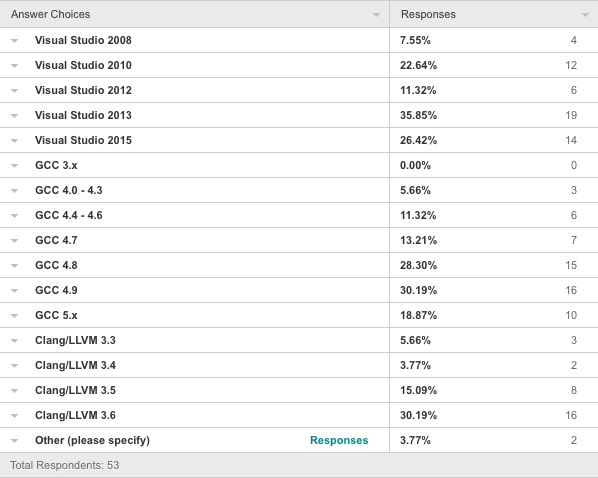POCO Usage Survey – Results
After having it open for 20 days, I have closed our POCO Usage survey today. We’ve collected 53 responses in total which is not really that much but at least something to work with. So, without further ado, here are the results:
Question 1: Which POCO libraries are you currently using in your project?
We clearly see Foundation, Net and Util being the most popular libraries.
Question 2: Which POCO version are you using?
Release 1.6.0 dominates with over 50 %, followed by 1.4.7 and 1.6.0.
Question 3: What platforms are you using POCO on?
Linux (79 %) narrowly beats Windows (~70 %), followed by OS X. We also have Android, iOS and Embedded Linux.
Question 4: Which compilers are you using with POCO?
The POCO user community prefers current compiler versions. On Windows, Visual Studio 2013 dominates followed by Visual Studio 2015. Interestingly, Visual Studio 2010 is used by twice as many as Visual Studio 2012. Regarding GCC, 4.9 and 4.8 are top, as well as Clang/LLVM 3.6.
Question 5: How do you like POCO?
We get a good 1.4 average. Most users find POCO great, one finds it sucks…
Question 6: Please tell us in what kind of project you are using POCO
Here we see everything from games, cross-platform desktop software, big data to different kinds of devices.
Question 7: What feature(s) would you like to see in POCO?
Unsurprisingly, top requests are for better C++11/C++14 support and asynchronous programming (go Alex!). Some people also would like to see better documentation.
Conclusions
For me, there weren’t really any surprises in the answers. It shows that we’re on a good path.
With upcoming release 1.7, we’re starting to move towards full C++11 and C++14 support. Given that most POCO users are on recent compiler versions, I also think we can specify minimum supported compiler versions for 1.7 to Visual Studio 2013, GCC 4.8 and Clang/LLVM 3.6, which will make our way towards C++11/14 much easier. Support for asynchronous programming has been on our roadmap for quite some time now, and if time and resources permit, we may have something coming this fall.

